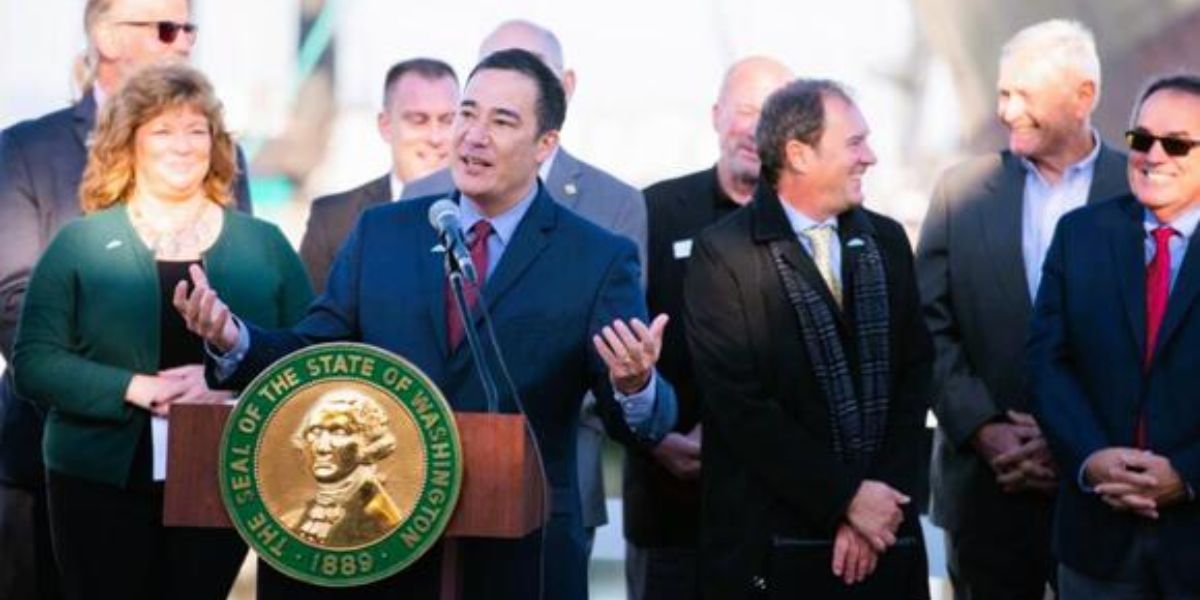Two-term Democratic Gov. Roy Cooper vetoed legislation providing $227 million in assistance to western North Carolina’s recovery from Hurricane Helene.
Thirty-six days after leaving the governor’s mansion, the 67-year-old Nash County lawyer labeled the bill “a sham” and cited the removal of appointment authority from the governor’s office and the attorney general’s prohibition on lobbying “for lower electric bills for consumers.”
For comparison, just the first 13 of the proposal’s 132 pages are about Helene, a Category 4 storm that hit Florida on September 26. In this ninth week of recovery in the North Carolina mountains, the astounding stats include 103 deaths, $53 billion in estimated damage, according to the governor, and 30 inches of rain that terrible weekend in some spots.
The rejection also prevents a $50 million transfer to the financially struggling Office of Recovery and Resiliency, where Chief Operating Officer Laura Hogshead was let go on Thursday. According to Cooper’s prior proposal, that office has a budget deficit of at least $175 million, which may go as high as $265 million based on Hogshead’s testimony before a state legislative body.
The 29th veto of this two-year session, with only a month left, is expected to be contested by overrides from the Senate and House of Representatives. There were 35 vetoes before Cooper entered office, with the first being used on November 3, 2002. A three-fifths majority in each would make Disaster Relief-3/Budget/Various Law Changes, also known as Senate Bill 382, into law.
On Oct. 9, lawmakers approved $273 million, and on Oct. 25, Cooper signed another $604 million, plus $40 million, for disaster relief for Tropical Storm Debby, also known as Potential Tropical Cyclone 8, and a tornado that hit Nash County.
If SB382 passes, state lawmakers will provide $1.1 billion ($1,104,000,000) in Helene relief, with an additional $40 million in disaster aid for other hurricanes.
“This legislation was titled disaster relief,” said Cooper in a prepared statement, “but instead violates the constitution by taking appointments away from the next governor for the Board of Elections, Utilities Commission and commander of the North Carolina Highway Patrol, letting political parties choose appellate judges and interfering with the attorney general’s ability to advocate for lower electric bills for consumers.”
Cooper stated that small business grants to disaster areas are being skipped in “a cruel blow by blocking the extension of better unemployment benefits for people who have lost jobs because of natural disasters.”

He stated that removing two judges elected by people and replacing them with two nominated by the Legislature, so reducing some of the authority vested in the lieutenant governor and superintendent of public instruction, “plays politics.”
If an override is required, Republicans have exactly three-fifths majorities in both chambers – 30 in the Senate and 72 in the House. The vote in the House was 63-46, with no Democrats and just Republican Representatives voting in favor. Mike Clampitt of Swain County, Karl Gillespie of Macon County, and Mark Pless of Haywood County voted no. All three come from mountainous counties.
The vote in the Senate was 30-19, with no Republicans opposed and no Democrats in favor.
At the time of passage, Senate President Pro Tempore Phil Berger, R-Rockingham, stated about the State Board of Elections changes, “For years Republicans have tried to bring true bipartisanship to the state board by giving Republicans and Democrats equal representation, but Democrats have fought us every step of the way.”
The five-member state board is split 3-2, with the governor’s party holding the lead. Originally, Republicans in this session advocated for an eight-member board. SB382 reduces the number to five, with no more than three from the same political party, all selected by the state auditor, and tenure of four years.
County boards would likewise have five members, two each nominated by the state board from the two political parties with the most registered affiliates. The state auditor would appoint the chairman. Terms last two years.
Correcting registration forms is one of the improvements to the election laws. The cure time for provisional ballots will be noon on the third business day after Election Day, rather than 5 p.m. the day before the county canvass.


 by
by 

